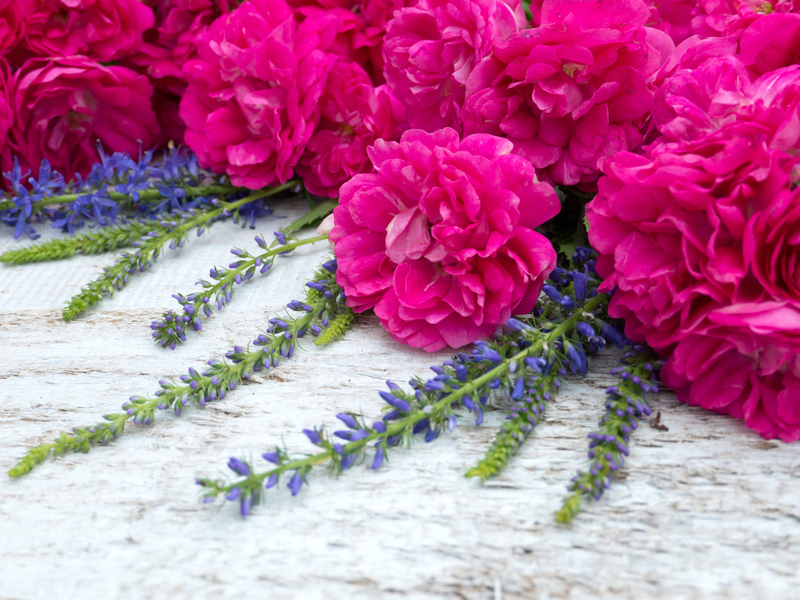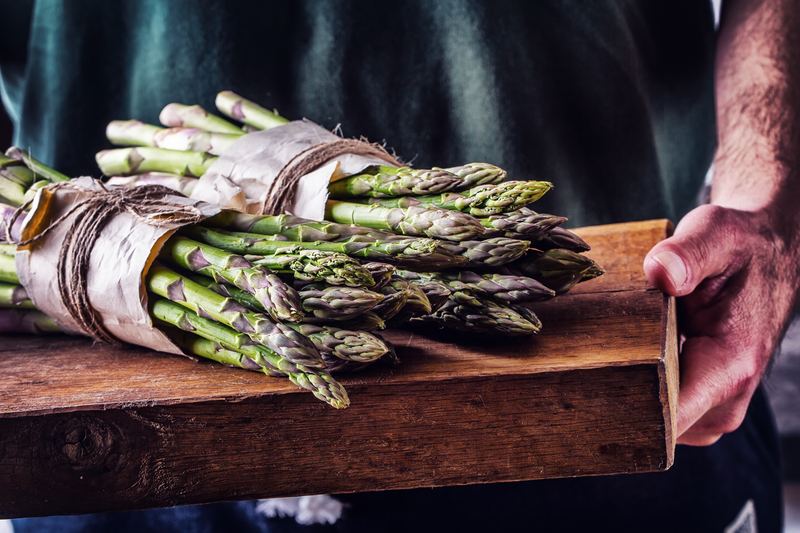Secrets to a Bountiful and Fragrant Herb Garden
Posted on 03/09/2025
Secrets to a Bountiful and Fragrant Herb Garden
Cultivating your own herb garden is one of the most rewarding experiences for gardeners, food lovers, and anyone enchanted by aromatics. Whether you're a seasoned green thumb or a beginner, unlocking the secrets to a thriving, flourishing, and fragrant herb garden will transform your culinary endeavors, boost your health, and add beauty to your space. Discover everything you need to know--including selection, soil secrets, and expert tips--for growing a bountiful and aromatic herb garden in this comprehensive guide.
Why Choose a Home Herb Garden?
- Fresh Flavors: Picking herbs at their peak delivers unrivaled taste to your dishes.
- Natural Aromatherapy: Enjoy the fresh, invigorating scents straight from your patio or windowsill!
- Cost-Effective: Growing herbs at home is often far cheaper than store-bought options.
- Health Benefits: Many herbs offer medicinal properties and nutritional perks.
- Visual Appeal: An herb garden offers lush greenery and gorgeous blossoms.
Harnessing these benefits begins by understanding the essential elements for success.

Selecting the Best Herbs for Your Garden
Not all herbs flourish in every environment. Here's how you can choose the perfect herbs for your bountiful and aromatic garden based on your climate, culinary preferences, and available space.
Consider Your Region and Microclimate
- Warm, Sunny Climates: Rosemary, basil, thyme, and oregano love heat and full sun.
- Cooler Areas: Mint, parsley, chives, and cilantro perform well in milder temperatures.
- Shaded Spaces: Chervil and lemon balm cope better with less direct sunlight.
Choose Aromatic and Productive Varieties
- Basil Varieties: Genovese, Thai, and Purple basils offer unique flavors and intoxicating scents.
- Mint Family: Spearmint, peppermint, and chocolate mint are highly fragrant and versatile.
- Culinary Classics: Parsley, sage, rosemary, and thyme--all popular for both flavor and fragrance.
- Unusual Picks: Lemon verbena, pineapple sage, and scented geraniums add intrigue.
Pro Tip: Mix perennial and annual herbs to ensure a year-round bountiful herb garden.
Planning and Designing Your Herb Garden
A successful fragrant herb garden is not only productive but also a joy to behold and a pleasure to tend. Attend to these essential planning steps:
Choose the Right Location
- Sunlight: Most herbs require 6-8 hours of sunlight. Place your garden where sun is plentiful.
- Accessible Water: Make sure your herbs can be easily watered, but avoid overwatering.
- Visibility: Plant herbs where you'll see and use them--near the kitchen or patio doors.
- Well-Drained Soil: Damp, stagnant roots stunt growth and reduce fragrance.
Garden Layout Ideas
- Formal Knot Gardens: Arrange herbs in geometric patterns for a classical, elegant look.
- Container Gardens: Perfect for patios, balconies, or small spaces. Containers can be moved to chase the sun!
- Raised Beds: These provide excellent drainage and allow for better soil control.
- Vertical Gardens and Windowsills: Use stacked planters or hanging pockets for an indoor or outdoor fragrant herb garden.
Tip: Group herbs by water and sunlight needs to simplify care and ensure each plant thrives.
Soil Secrets for a Lush, Aromatic Herb Garden
The foundation for any bountiful herb garden is the soil. Good soil supports vigorous growth, deep flavor, and rich aromas.
Building the Best Soil
- Well-Draining Mix: Herbs dislike soggy roots. Amend heavy soil with sand, perlite, or grit.
- Organic Matter: Compost enriches the soil, improves moisture retention, and boosts nutrients.
- pH Levels: Most herbs thrive in neutral to slightly alkaline soil (pH 6.0-7.5).
- Mulch: Apply a thin layer of straw, bark, or gravel to suppress weeds and conserve moisture.
Top Soil Tips
- Test your soil before planting. Amend as needed--herbs are forgiving but reward good preparation.
- Feed sparingly: Too much fertilizer reduces essential oils and thus, fragrance and flavor!
Planting: Setting the Stage for a Bountiful Herb Garden
Sowing Seeds vs. Transplants
- Seeds: Great for basil, cilantro, and dill. Cheaper, wide variety, but longer to mature.
- Transplants: Ideal for slow-growers like rosemary and thyme. Jumpstart your herb patch.
Spacing and Companions
- Space accordingly: Give each plant room to breathe to prevent pest and disease issues.
- Mind aggressive spreaders: Plant mint in containers or barriers. Otherwise, it will take over!
- Companion planting: Some herbs, like basil and tomatoes, are mutually beneficial. Avoid mixing fennel with most other herbs.
Expert Hint: Stagger plantings every few weeks for a season-long harvest of delicate annual herbs.
Secrets to Watering and Feeding Your Aromatic Herbs
Water Wisely
- Deep, infrequent waterings: Encourage deep root growth and stronger, better-tasting herbs.
- Morning is best: Water early to minimize evaporation and reduce mildew risk.
- Mulch: Helps retain moisture, reduce runoff, and keep weeds at bay.
Feeding for Fragrance
- Avoid over-fertilizing: High-nitrogen boosts leaf growth but diminishes flavor and aroma.
- Organic options: Compost tea, worm castings, or diluted fish emulsion encourage steady, balanced growth.
Avoid chemical pesticides, which can taint both scent and flavor. Instead, invite beneficial insects or use neem oil for sustainable pest control.
Harvesting and Pruning: Boosting Your Herb Garden's Bounty and Aroma
Pruning for Abundance
- Pinch and snip regularly: Most herbs respond to pinching by pushing out new, tender growth.
- Never cut more than a third: Over-harvesting stresses plants and reduces long-term yield.
- Keep basil from flowering: Remove buds promptly to prolong leafy growth and maximize aroma.
Best Harvesting Strategies
- Morning is prime time: Oils--and thus, fragrance and flavor--are most concentrated after dew dries but before the sun gets hot.
- Use sharp, clean scissors: Prevent disease spread and promote tidy regrowth.
- Dry or freeze surplus herbs for year-round enjoyment and peak flavor retention.
Caring for Your Herb Garden Through the Seasons
Spring and Summer
- Mulch and weed control: Keep beds neat to reduce competition.
- Support taller herbs: Use stakes for floppy, leggy plants (like dill or fennel).
- Monitor moisture: Especially important during heat waves.
Autumn and Winter Prep
- Harvest and dry: Cut back perennials. Prepare for winter dormancy.
- Indoor transitions: Pot herbs like basil, chives, or mint for windowsill growth.
- Mulch deeply: Insulate perennial roots with straw or leaves in cold climates.
For a perennial, aromatic herb garden, be attentive to each plant's cold tolerance and protection needs.
Dealing with Pests & Problems Naturally
Common Culprits
- Aphids: Spray with water or introduce ladybugs.
- Slugs and snails: Use beer traps, copper barriers, or hand-picking.
- Fungal issues: Good air circulation, well-drained soil, and judicious watering prevent most problems.
Encourage Beneficial Insects
- Lacewings and ladybugs: Devour aphids and other pests.
- Hoverflies: Excellent pollinators and pest controllers.
- Flowers like nasturtiums and calendula attract allies for a healthier, organic herb garden.
Remember: Healthy, vigorous plants are less likely to succumb to pests or diseases.
Secrets for Maximizing Fragrance in Your Herb Garden
- Sunlight: Essential oils--and fragrance--are strongest in herbs grown with ample light.
- Pruning: Regular cutting encourages fresh, aromatic growth.
- Stress lightly: Allowing herbs like lavender and rosemary to get a little dry occasionally boosts their essential oil concentration.
- Location: Plant fragrant herbs near walkways, doors, or seating areas to enjoy the scents daily.
- Combine herbs: Mix aromatic species for a layered sensory experience.

Creative Uses for a Bountiful and Aromatic Herb Garden
- Fresh Cooking: Elevate meals with just-picked herbs--pesto, salsas, teas, and salads.
- Homemade Gifts: Bundle dried herbs, bath sachets, or infuse oils and vinegars.
- Natural Remedies: Create soothing teas, salves, or tinctures with medicinal varieties.
- Beauty and Skincare: Add herbs to bath soaks, facial steams, or DIY lotions.
- Companion Planting: Use strong-smelling herbs to repel garden pests and attract pollinators.
Tip: The secret to a successful and enjoyable herb garden is to get creative and experiment!
Conclusion: The Secrets to a Truly Successful Herb Garden
Developing a lush, bountiful, and fragrant herb garden is a journey that combines art and science. By choosing the right varieties, tending to soil and water needs, harvesting wisely, and embracing organic strategies, anyone can enjoy the boundless rewards of fresh herbs. Whether your goal is to enhance flavor, health, or your living environment, these herb garden secrets will guide you to abundant harvests and intoxicating aromas year after year.
Start today and watch your aromatic herb haven grow--nature's freshest flavors and fragrances await just outside your kitchen door!



